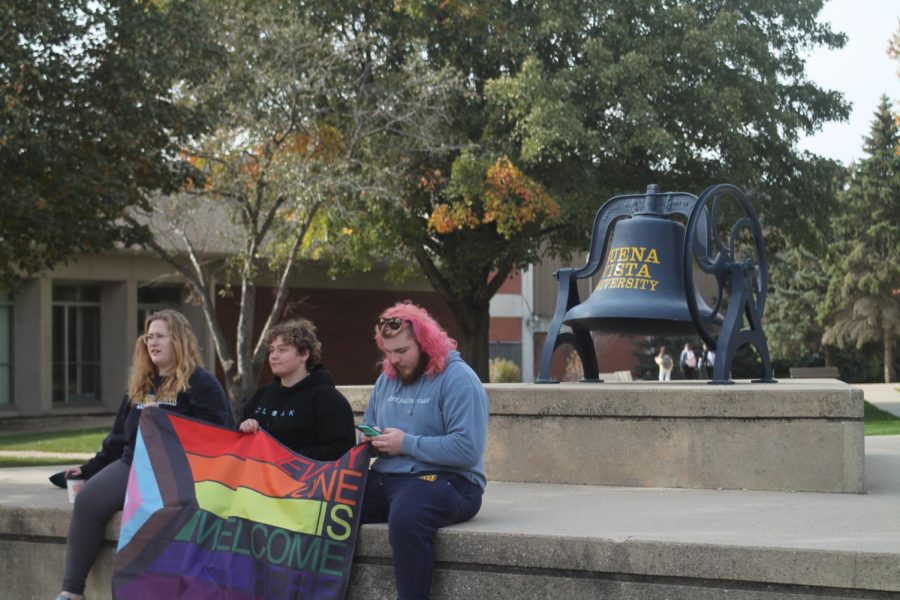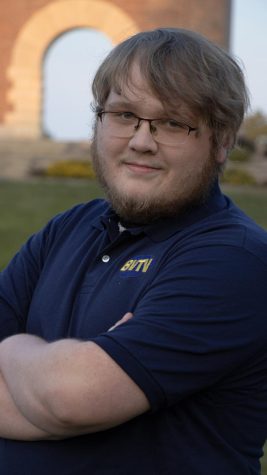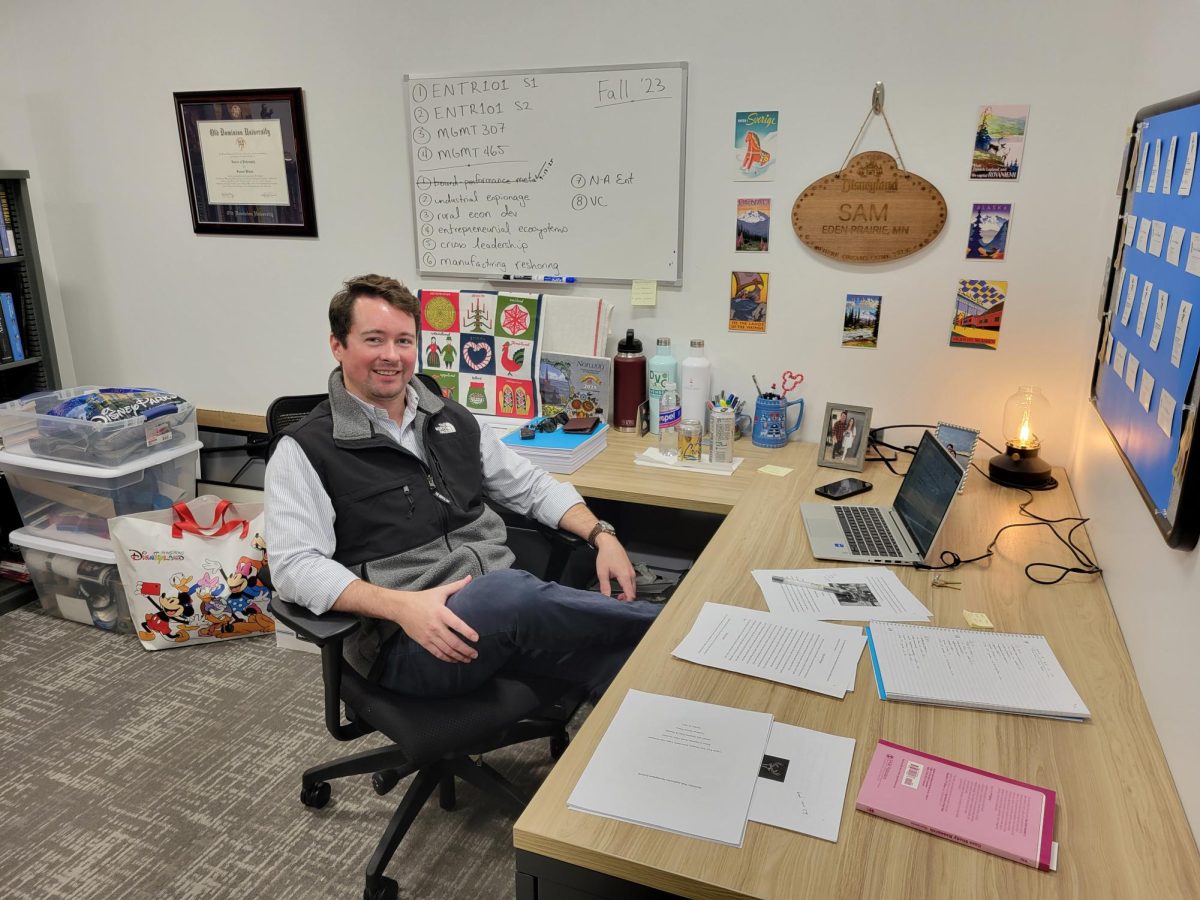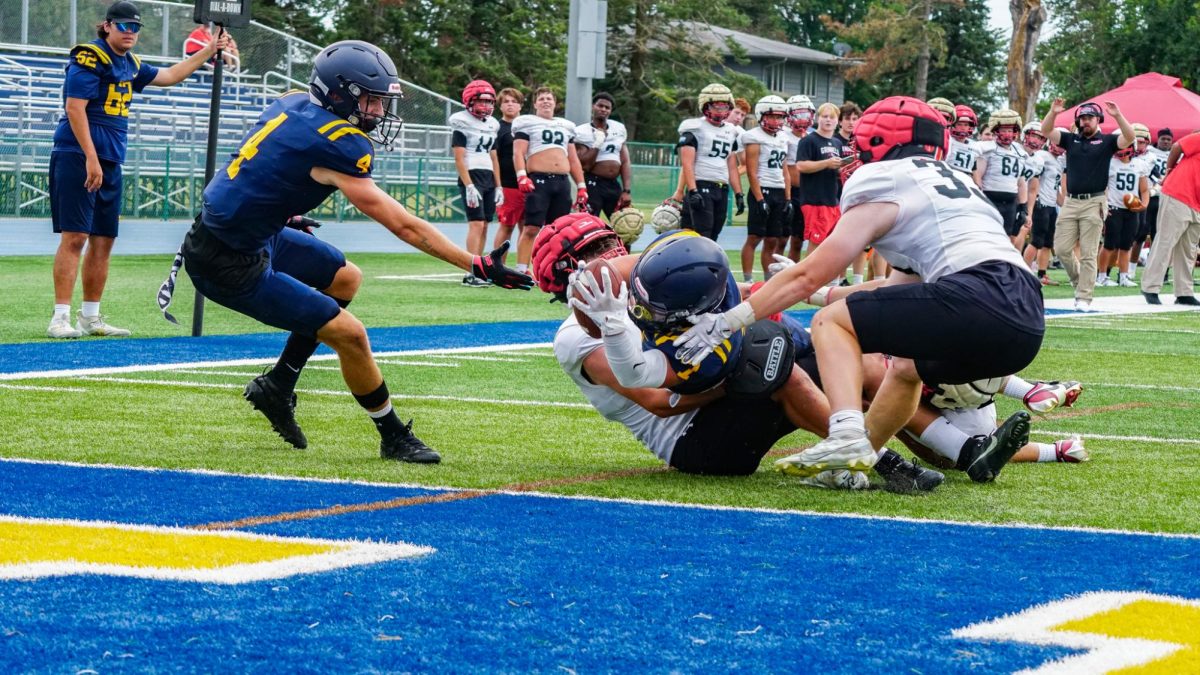Iowa’s “Don’t Say Gay” Bills
March 28, 2023
“I see this as the beginning of something worse,” Andrew Fox, a 20-year-old trans man at Buena Vista University, said of Iowa’s House File 8 and 9.
House File 8 and 9 can be compared to the “Don’t Say Gay” bill passed in Florida. HF 8 bars any discussion of sexual orientation or gender identity from kindergarten to 3rd grade. Those in support of HF 8 and 9 argue that all discussions of these topics be held solely by the students’ guardians and that these measures will ensure that the school is transparent with them.
However, HF 9 appears to be a little more prohibitive than HF 8. While HF 8 focuses on school curriculum and transparency, HF 9 lists rules that teachers will have to follow. For example, any gender accommodation will not be allowed without explicit written consent from the guardian. Also, teachers may not under any circumstances encourage a student or guardian to undergo any treatment that affirms their gender identity if it doesn’t match their birth certificate. HF 9 appears to target trans individuals more so than others.
“I have been threatened before,” Fox said. His sense of safety is something he worries about in general, but specifically more so now that these proposals are floating in the Iowa state government. “It’s very stressful,” he continued. “It brings younger trans people and puts ‘em in danger.” While Fox might not be affected personally, he said the lack of education and normalization of outing students might go on to affect him later in life. “Kids will find it a social responsibility to out other kids.”
Opposers of the bill worry about LGBTQ+ youth and the teacher shortage currently impacting Iowa. How would this bill affect students whose parents don’t accept them? How would teachers feel if they could no longer support their students? The National Network for Youth states that this could put kids in danger, as “family conflict is the primary cause for homelessness for LGBTQ+ youth.” While this bill is currently only targeting youth in schools, some students at BVU certainly feel the impact these proposals are giving.
Katlynn Burch is a junior computer science student at BVU. “I was scared to tell my parents and they were accepting,” said Katlynn, reflecting on her bisexuality. “I feel slightly less safe, but I’m more worried about kids who were where I was,” Katlynn added. “I had a teacher I could go to and there was no judgment.” Were these proposals to take effect, these resources would no longer be available to kids in school.
The Trevor Project found that transgender individuals who are accepted are less likely to commit or attempt suicide. They state: “transgender and nonbinary (TGNB) youth who reported gender identity acceptance from at least one adult had 33% lower odds of reporting a past-year suicide attempt.” What if that one adult could be a teacher? Would restricting teachers from supporting the students in school increase the rate of suicidality among transgender individuals? These laws might inhibit these students from being themselves directly but could also indirectly inhibit their mental health.
The local community around BVU is speaking up. The Storm Lake Times wrote a response to this bill. “Their enactment will cause irreparable damage to our LGBTQ+ communities, especially youth,” was their conclusion. In the article, the authors at the Storm Lake Times argue vehemently that this bill would both harm youth and limit free speech. Some of the free speech arguments come from Iowa House File 7.
Iowa House File 7 is slightly different from 8 and 9, applying solely to Iowa’s public universities. This bill states that these schools will have to report what they teach, including LGBTQ+ topics, such as “queer identities at all levels of kindergarten through twelfth-grade education.” It also states that schools will have to report about compulsory heterosexuality. These topics are taught through education degrees, so these schools would essentially have to report about what and how much they teach these topics to future teachers. More information can be found here.
People in the Storm Lake community are both worried and angered about the safety of both themselves and the youth. More of these legal proposals, like HJR 8, seek to do even more harm to the LGBTQ+ community in Iowa. These proposals seem to echo sentiments from across the nation. At the Conservative Political Action Conference (CPAC) this year, a speaker named Michael Knowles said, “transgenderism must be eradicated from public life entirely.” With these proposals, it looks like the Iowa legislature agrees.








